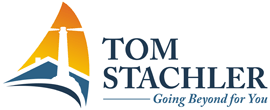Autumn Festivities at Wiard's Orchards
Autumn is here and that brings along with it the crisp mornings, mildly warm days, apple cider and family festivities! This is the time of year that you can head out to Wiard’s Orchards and Country Fair for a fun, old-fashioned trip to the farm and pick up some pumpkins, cider, produce and also enjoy a long list of all kinds of other fun activities.
Before mentioning the fun events at the orchards, a bit of history about the farm is in order. According to their website, Wiard’s was first established by George Wiard in 1837. The original site of this cider mill and apple orchard was on Wiard Road, near what is now Willow Run Airport. During World War II, a new bomber plant at Willow Run required Wiard’s to move to their current location.
The Cider Mill is has long been a cornerstone of Wiard’s and is still fully operational today. They are still producing their delicious apple cider every fall, which all started from a recipe concocted by George Wiard in 1837. Along with the Cider Mill, the Country Store and Farm Bakery are cooking up fantastic fresh pies, caramel apples, cider mill donuts and other pastries. You can also find some specialty jams, jellies and salsas, as well as gifts for the kids.
If you’re looking for more than just a few delicious snacks and want to stay awhile on the farm, then purchase your ticket for Country Fair. Here you’ll gain admission to much more of the outdoor entertainment! Everything from hayrides, kids’ playground, a corn maze, an animal petting farm, miniature golf, pony rides, in addition to many other exciting things to do!
For the kids that are 10 years and older, get ready to be spooked at the Night Terrors haunted attractions. Every Friday and Saturday in September and October, you can head out to Wiard’s for some chilling adventures through 6 different haunted sites. You can walk through the Ultimate Haunted Barn, or explore The Asylum. Find your way through The Labrynth, take in the Alien Caged Clowns, explore The Mind Shaft, or take a ride on the Hayride of The Lost. These haunted attractions are not meant for the little ones, so plan accordingly.
With so much going on at Wiard’s Orchards and Country Fair this time of year, this is a great place to visit several times before autumn turns into winter. Find directions on their website and we hope to see you there!




